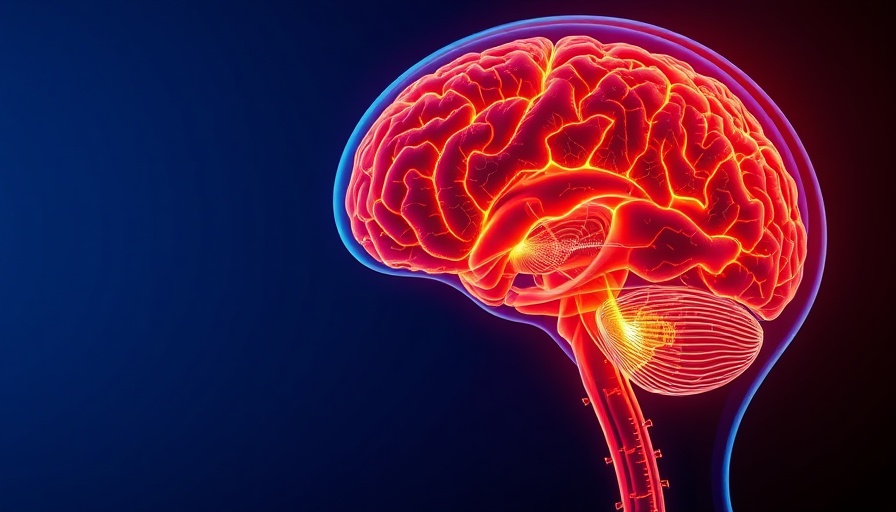
Understanding the Link: Reproductive Spans and Brain Health
Recent research indicates a fascinating relationship between women's reproductive spans and brain aging. A study conducted with over a thousand postmenopausal women reveals that those with longer reproductive spans—characterized by an earlier onset of menstruation and a later onset of menopause—exhibit signs of slower brain aging. This is measured by a novel biomarker identified through advanced brain MRIs.
Insights into Estradiol's Role
Estradiol, a key female sex hormone, plays a critical part in this relationship. After menarche, estradiol levels rise and remain elevated until the perimenopausal stage, where they begin to decline. This hormonal shift is vital as it correlates with various age-related cognitive changes. Research suggests that decreasing levels of estradiol post-menopause may contribute to the deterioration of brain health, potentially increasing the risk of dementia and other neurological conditions.
The Age of the Brain: What is BrainAGE?
The concept of BrainAGE serves as an innovative framework to assess cognitive health. In the study, participants underwent structural MRI scans to determine their brain age and correlate it with their chronological age. The differential, referred to as BrainAGE, highlights whether a woman's brain appears younger or older than expected for her age, providing critical insights into cognitive resilience across varying reproductive life spans.
Analyzing Structural Changes: Cross-Sectional and Longitudinal Approaches
The research employed both cross-sectional and longitudinal methodologies to analyze the data. The cross-sectional analysis allowed researchers to capture a snapshot of the population's current state, while the longitudinal analysis tracked changes over time. This comprehensive approach sheds light on how reproductive history may influence the structural integrity and age of the brain, thereby supporting the broader quest to understand cognitive aging in women.
Implications for Women's Health
These findings not only advance our understanding of women's health but also highlight the potential for lifestyle modifications to influence brain health positively. For example, maintaining an active and healthy lifestyle may help in sustaining estradiol levels and, consequently, cognitive function as women age. Emphasizing nutrition, fitness, and mental well-being can play a significant role in various stages of female life.
Future Directions: What Lies Ahead for Research?
As research in this area unfolds, it could pave the way for innovative strategies aimed at mitigating age-related cognitive decline among women. Future studies could focus on various interventions—ranging from hormonal therapies to lifestyle adjustments—that might sustain brain health during the transitions of reproductive aging. Making these findings accessible is crucial for women seeking to maintain cognitive vitality.
Call to Action: Prioritize Your Health!
Understanding how reproductive factors influence brain health is essential for women seeking to enhance their quality of life. Being informed empowers women to make choices that can improve both their reproductive health and cognitive function as they age. Prioritize regular health assessments and engage in proactive discussions with healthcare providers about the implications of hormonal health on cognitive well-being.
 Add Row
Add Row  Add
Add 




Write A Comment